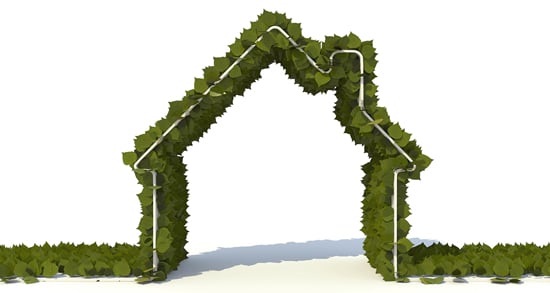Zero Waste: Easy And Helpful
The world needs millions of imperfect, environmentally conscious individuals striving for zero waste, not a few doing it flawlessly.
Americans generate 4.9 pounds of trash per person every day — nearly 1,800 pounds of waste per American every year — to sustain our culture of overconsumption. Not only does this overconsumption require vast amounts of energy to produce these goods and cause pollution during the extraction of raw materials from natural spaces, such as logging forests, mining minerals, or drilling for oil, all the waste generated increases our negative climate impact on the planet by increasing greenhouse gas emissions. According to the U.S. EPA, approximately 42% of all greenhouse gas emissions derive from the production and utilization of goods, encompassing food, products, and packaging.
However, there are numerous ways, big and small, to fit waste reduction into your lifestyle, with zero waste as the ultimate goal. A zero waste lifestyle begins with a mindset change to reduce, reuse and recycle. The most important of these is reduce. Reduce the amount you consume and you automatically reduce how much waste you generate.
Try these simple tips to help you get started on your path to zero waste and be part of the solution for a healthier planet. And remember, the world needs millions of imperfect, environmentally conscious individuals striving for zero waste, not a few doing it flawlessly.
#1 Audit your trash.
You must know what trash you are creating first and be aware of the problem before you can change it. Once you have identified your trash, you can take steps to reduce it.
#2 Evaluate the necessity of every purchase.
Practice the habit of precyling by asking, “Do I really need this or do I just want it?” This will prevent lots of trash from even getting inside your door in the first place. By being selective about what you purchase and researching which brands are helping the environment with responsible packaging and policies, you can put the power of your pocketbook to work in your quest for zero waste. You can earn to shop more consciously with these tips in mind:
- Only buy what you’ll use before the expiration date.
- Buy food with recyclable packaging, and avoid single-use plastics wherever possible.
- Buy in bulk where you can.
- Use glass containers or wicker baskets at home to store food, rather than ziplock bags.
- Do your shopping with big material or mesh bags to carry the food in.
#3 Start a vegetable garden.
Having a vegetable garden is an excellent way to reduce your waste production and enjoy a variety of plants around your home. Harvesting your own vegetables means you won’t spend as much on store-bought foods. It’ll also reduce the amount of food packaging that lands up in the trash. If you live in an apartment or you don’t have garden space, see if you can get a neighborhood garden going or try balcony or windowsill gardening in pots.
#4 Learn how to compost.
Composting is an excellent way to divert more waste from landfills and produce a beneficial by-product for nourishing plants and gardens. All your kitchen scraps and yard clippings can be used to create compost and avoid ending up in the landfill. If you lack yard space for composting, find out if your community has a drop-off or curb-side service you can use.
#5 Reuse everything.
Replace disposable items with reusable alternatives, such as handkerchiefs, refillable bottles, shopping totes, cloth napkins, and rags. You may discover that you do not miss paper towels and instead appreciate the cost and environmental savings. Always consider how you can reuse or repurpose an item, rather than just throw it away. Don’t forget to refuse, either. Just because something is free or being offered to you, does not mean you need to take it.
#6 Repair items.
Instead of disposing of ripped clothing or a broken item, repair things to give them new life, which also provides savings to your wallet and moves you closer to your zero waste goals. Likewise, you can explore upcycling and consignment shops when you need to make a purchase. Bringing something existing back to life and giving it a new purpose is an excellent way to prevent adding to the waste stream. It can also be an exciting and rewarding project if you are looking for a new hobby. Become a DIY master with skills you never even knew you had. Buy quality items that will last longer, and take care of the things you own. Before buying something new, ask yourself: Can I fix it? Can I make it myself? Can I borrow it? Do I really need it?
#7 Avoid plastic packaging whenever possible.
Avoid products with excessive extra packaging. Buy local instead of having things shipped to you. About 40% of the bottled water on the market is, in reality, tap water. Consider investing in a high-quality water filter and a reusable water bottle. Additionally, pick up a thermos for your on-the-go coffee or tea to enjoy it just the way you like while saving some money. Striving for a zero waste lifestyle is not only good for the planet, but your wallet and overall health as well.
Jeannette Garcia is passionate about zero waste living and sharing ideas for others to join in this common cause. She lives in a tiny house in rural Colorado with 2 dogs, an iguana and a love of nature.











